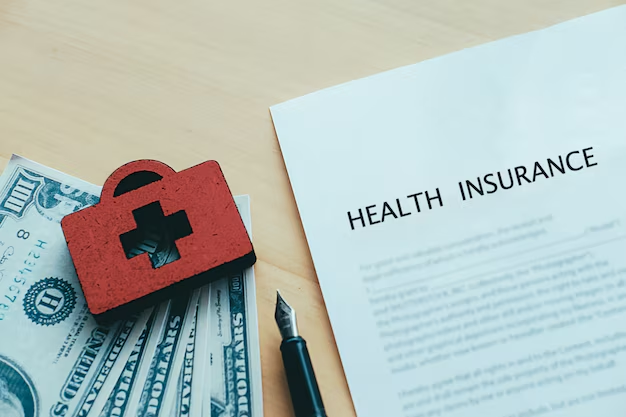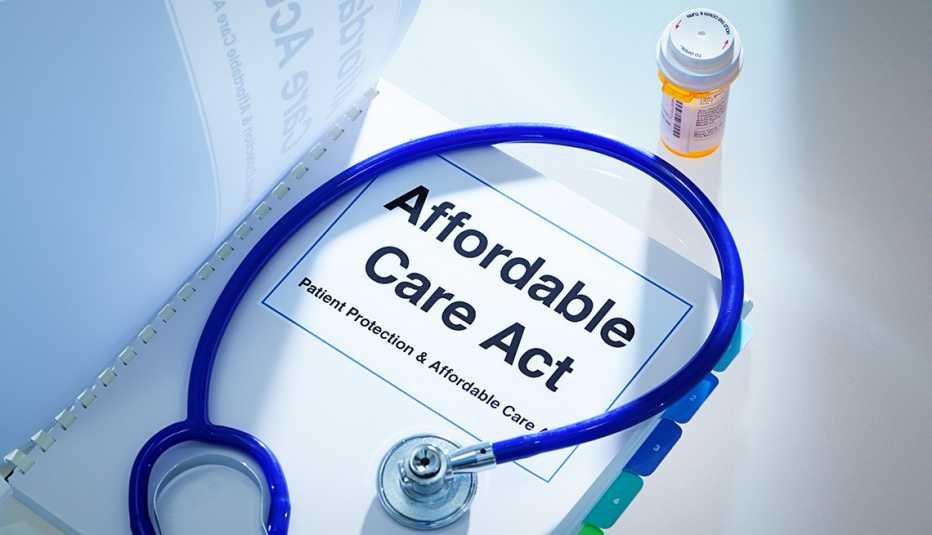Health insurance for free is vital to maintaining your health and financial well-being. However, the cost of health insurance can often be a burden for individuals and families, especially those with limited incomes. Fortunately, there are ways to access health insurance for free or at a significantly reduced cost. Many government programs, non-profit organizations, and employer initiatives exist to provide affordable or free healthcare coverage. Understanding these options can help you get the protection you need without breaking the bank. In this article, we will explore the best ways to obtain free health insurance, eligibility requirements, and how to apply for these programs.
Key Takeaways
Medicaid Eligibility
Medicaid provides free or low-cost health coverage for low-income individuals and families. Eligibility depends on income, family size, and state-specific guidelines. You can apply through your state Medicaid office or HealthCare.gov.
Children’s Health Insurance Program (CHIP)
CHIP offers free or affordable health insurance for children in families that earn too much for Medicaid but not enough to afford private insurance. In some states, CHIP also covers pregnant women.
Affordable Care Act (ACA) Subsidies
If you don’t qualify for Medicaid, you can apply for health insurance through the ACA Marketplace. Based on your income, you may be eligible for premium tax credits or subsidies, which can make coverage free or very affordable.
Employer or Union-Sponsored Health Plans
Some employers and unions offer fully paid health insurance as part of employee benefits, particularly for low-wage workers. Check with your HR department to see if you qualify.
Community Health Clinics and Programs
Federally Qualified Health Centers (FQHCs), nonprofit clinics, and community health programs provide free or sliding-scale healthcare services to uninsured individuals. They may also help you enroll in free insurance programs.
Government Programs Offering Free Health Insurance

One of the most common ways to access free health insurance for free is through government programs. These programs are designed to help individuals, families, seniors, and those with specific needs gain access to healthcare.
Medicaid
Medicaid is a government-funded program that provides free or low-cost health insurance to low-income individuals and families. Each state administers Medicaid based on federal guidelines, and eligibility criteria may vary depending on income, family size, and disability status.
- Eligibility: Generally, you must have an income below a certain threshold, which varies by state. Children, pregnant women, seniors, and individuals with disabilities often qualify more easily.
- Benefits: Medicaid covers doctor visits, hospital stays, prescriptions, preventative care, and other essential services.
- How to Apply: Visit your state’s Medicaid website or healthcare marketplace to fill out an application.
Children’s Health Insurance Program (CHIP)
CHIP is specifically designed to provide free or low-cost health insurance for children and teens in families that do not qualify for Medicaid but cannot afford private insurance.
- Eligibility: Income limits vary by state, but CHIP typically covers children under 19 years old.
- Benefits: CHIP covers routine checkups, immunizations, emergency services, dental care, and prescriptions.
- How to Apply: Applications can be submitted through your state’s Medicaid or CHIP website.
Medicare
Medicare provides health insurance for seniors aged 65 and older, as well as individuals with specific disabilities.
- Eligibility: Seniors over 65, people with end-stage renal disease, and those receiving Social Security Disability Insurance (SSDI) for at least 24 months.
- Benefits: While Medicare is not entirely free, Medicare Part A (hospital insurance) is free for most individuals who have worked and paid taxes for at least 10 years.
- How to Apply: Apply online via the Social Security Administration website or visit a local office.
Affordable Care Act (ACA) Subsidies

The Affordable Care Act offers subsidies for individuals and families with low or moderate incomes to purchase health insurance. Depending on your income, you may qualify for a plan with a $0 premium.
- Eligibility: Based on income and household size. Subsidies apply to those earning between 100% and 400% of the federal poverty level.
- Benefits: Access to comprehensive insurance plans through the healthcare marketplace.
- How to Apply: Visit HealthCare.gov or your state’s exchange to check eligibility and enroll.
Non-Profit Organizations Offering Free Health Insurance
Several non-profit organizations partner with government programs or operate independently to provide free or low-cost health insurance. These organizations serve vulnerable populations, such as the unemployed, underemployed, and uninsured.
- HealthWell Foundation: Provides financial assistance for health insurance premiums and out-of-pocket medical costs.
- United Way: Offers resources and information to help families access free or affordable health insurance.
- Community Health Clinics: Many non-profits run free or sliding-scale clinics that offer medical care and connect individuals to free insurance programs.
These organizations often work closely with local governments and hospitals to bridge the gap for those in need.
Employer-Sponsored Health Insurance
Some employers offer free or subsidized health insurance to their employees. While not always entirely free, some companies cover the full cost of premiums as a benefit to their staff.
- Benefits: Employer-sponsored health insurance plans often provide comprehensive coverage, including preventative care, hospital visits, and prescription drugs.
- Eligibility: Eligibility varies depending on the employer and your employment status (full-time vs. part-time).
- How to Access: Check with your human resources department to see what options are available. Some companies may also extend coverage to dependents.
Short-Term Free Health Insurance Options
If you are temporarily uninsured due to a job loss, transitioning between jobs, or waiting for other coverage to begin, there are short-term options to help you access free healthcare services.
- COBRA Assistance Programs: Some states offer financial assistance for COBRA coverage, helping individuals maintain their employer-sponsored insurance after losing a job.
- Free Clinics and Community Health Centers: Federally Qualified Health Centers (FQHCs) provide free or sliding-scale healthcare to individuals without insurance.
- State Programs: Many states have temporary healthcare programs for individuals facing gaps in coverage. Check with your state’s health department.
Student Health Insurance Options
Many colleges and universities offer free or low-cost health insurance options for students. Some institutions include health insurance coverage in tuition fees, providing access to campus health centers or affiliated healthcare providers.
- Benefits: Coverage often includes preventative care, mental health services, and urgent care visits.
- Eligibility: Full-time or part-time enrollment in an accredited institution.
- How to Apply: Contact your school’s student services office for information about available plans.
Health Insurance for Veterans and Military Families
Veterans and their families can access free or subsidized health insurance through programs like TRICARE and the Veterans Health Administration (VHA).
- TRICARE: Offers free or low-cost healthcare coverage to active-duty military members, veterans, and their dependents.
- Veterans Health Administration (VHA): Provides healthcare services to qualifying veterans, including preventative care, mental health services, and hospital care.
- Eligibility: Based on military service and discharge status.
- How to Apply: Veterans can apply through the VHA website, while active-duty families can access TRICARE through their military base or TRICARE portal.
Community Health Programs and Mobile Clinics
Many communities offer free health insurance assistance through local health programs, including mobile clinics and community health workers. These services are often geared toward underserved populations, including low-income individuals, immigrants, or people in rural areas. Mobile clinics travel to various locations to provide free medical care, screenings, and sometimes help with applying for insurance. These services may also help with understanding eligibility for programs like Medicaid or ACA plans, ensuring that people can access affordable healthcare regardless of where they live.
Health Insurance Assistance through Religious Organizations
Some religious organizations and faith-based charities provide assistance in obtaining free health insurance or medical care. These organizations often help with enrollment in state or federal health programs and may even offer financial support to cover the cost of premiums for low-income individuals. Faith-based initiatives may also provide free clinics, counseling, and other healthcare services, making them an important resource for individuals who may not otherwise have access to insurance or medical care.
Free Health Insurance for Low-Income Workers through Trade Unions
Workers in certain industries with strong trade unions may have access to free or low-cost health insurance. Unions often negotiate with employers to provide benefits like fully covered health plans or affordable premiums for union members. If you are a member of a trade union, check to see if you qualify for health benefits that can provide free or affordable coverage for you and your family.
Accessing Health Insurance through Spouse or Domestic Partner
In many cases, individuals may qualify for free or low-cost health insurance through their spouse or domestic partner’s employer-sponsored plan. Some employers offer comprehensive coverage that may be free or have low premiums for their employees and dependents. If your spouse or partner has such coverage, you can explore the possibility of being added to their plan. It is important to check if your spouse’s employer offers a dependent health plan and ensure that both of you meet eligibility criteria.
Social Services Programs for Healthcare Assistance

Social services organizations often offer free assistance in finding healthcare coverage. These organizations may help individuals access free health insurance through state-sponsored programs like Medicaid, CHIP, or ACA subsidies. These programs can help with navigating the complexities of insurance applications and identifying potential financial assistance. Social services may also connect individuals with clinics that provide healthcare at reduced costs, offer prescriptions, or even provide free mental health services.
Free or Reduced-Cost Healthcare through Health Fairs and Events
Throughout the year, many nonprofit organizations, hospitals, and local health departments hold health fairs or special events that offer free medical screenings, vaccinations, health checkups, and insurance enrollment assistance. These events are often aimed at communities with limited access to healthcare and may help individuals get connected to free health insurance programs like Medicaid or provide valuable information on ACA marketplace options.
Health Insurance for People with Disabilities
In addition to Medicaid, people with disabilities may also be eligible for Supplemental Security Income (SSI), which can help cover healthcare costs through Medicaid. In some cases, individuals with disabilities may qualify for additional government programs, like Social Security Disability Insurance (SSDI), which can grant access to health insurance coverage. SSDI recipients can often get Medicare, which provides comprehensive medical coverage. Some states also offer Medicaid expansion programs specifically designed to assist individuals with disabilities.
Government Programs for Homeless Individuals
Homeless individuals often face significant barriers to accessing health insurance and healthcare. However, various government programs are available to provide healthcare coverage and services for homeless populations. These programs may include Medicaid, federally funded shelters with healthcare services, and special initiatives like the Health Care for the Homeless (HCH) Program, which provides free or low-cost health services to people experiencing homelessness.
Health Insurance for Immigrants and Refugees
Certain immigrant groups, particularly refugees, asylum seekers, and lawful permanent residents, may qualify for health insurance coverage through Refugee Medical Assistance (RMA) or state-level programs. Refugees and asylees may qualify for Medicaid or other state-funded programs, depending on their status and income. It’s important for immigrants to explore the health insurance options available to them, as there are programs specifically designed to cover those who may not have access to employer-sponsored insurance or other federal health programs.
Also Read: What Are The Benefits Of Private Medical Insurance For Individuals And Families?
Conclusion
Accessing free health insurance is possible through a variety of government programs, non-profit organizations, employer benefits, and temporary coverage options. Programs like Medicaid, CHIP, and Medicare ensure that individuals and families can receive the care they need regardless of their financial situation. By understanding the eligibility requirements and exploring all available options, you can secure coverage that fits your needs without the added financial stress.
For those who do not qualify for government-funded health insurance, alternative options such as employer-sponsored coverage, community health clinics, and educational institutions can provide essential medical services at little or no cost. The key is to research, apply for eligible programs, and seek assistance from healthcare navigators when needed. Free health insurance not only offers peace of mind but ensures that you and your loved ones remain protected during life’s unexpected moments
Frequently Asked Questions (FAQs)
What is the income limit to qualify for Medicaid?
Income limits for Medicaid vary by state but typically range between 100% and 138% of the federal poverty level.
How can I find out if I qualify for free health insurance?
You can check your eligibility through HealthCare.gov, your state’s Medicaid office, or by speaking to a healthcare navigator.
Is free health insurance really free?
Free health insurance programs like Medicaid and CHIP cover most or all healthcare costs. However, some programs may require small co-pays or out-of-pocket expenses for certain services.
Can unemployed individuals get free health insurance?
Yes, unemployed individuals may qualify for Medicaid, CHIP, or ACA subsidies depending on their income and household size.
Are there free health insurance options for students?
Yes, many schools and universities offer health insurance plans for students, which may be included in tuition fees or provided at no additional cost.
How do I apply for free health insurance?
You can apply for free health insurance programs through HealthCare.gov, state Medicaid websites, or non-profit organizations offering enrollment assistance.
What if I don’t qualify for Medicaid but can’t afford private insurance?
If you don’t qualify for Medicaid, you may be eligible for CHIP (for children), ACA subsidies, or free healthcare services through community health clinics.

